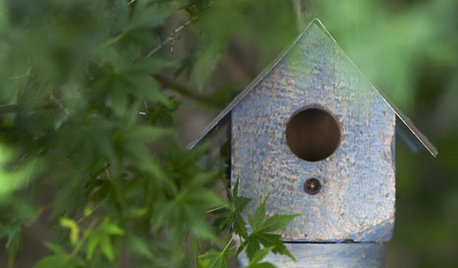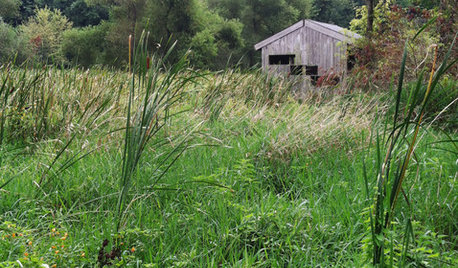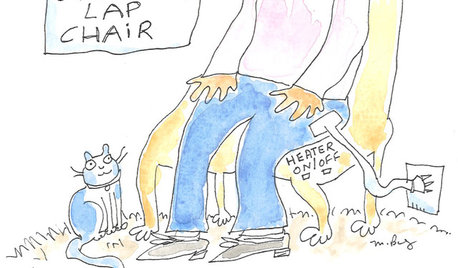effects of cats on wildlife?
kokosnood
18 years ago
Related Stories

GARDENING AND LANDSCAPINGBe a Citizen Scientist to Help Wildlife, Learn and Have Fun Too
Track butterflies, study birds, capture stars ... when you aid monitoring efforts, you’re lending Mother Nature a hand
Full Story
WINDOWSOpen a View to Your Backyard's Wildlife
Enjoy an eyeful of birds, deer, chipmunks and other creatures with natural outdoor habitats that include a hidden vantage point
Full Story
LIGHTINGWildlife-Sensitive Ways to Light a Coastal Landscape
Reduce harm to land and sea creatures by choosing the right light sources and placing them thoughtfully
Full Story
GARDENING FOR BUTTERFLIESGarden for Wildlife to Reap Rich Rewards
When you plant with animals and insects in mind, you make gardening easier, the planet healthier and yourself more present
Full Story
GARDENING GUIDES6 Plants That Beat Butterfly Bush for the Wildlife Draw
It's invasive, a nonnative and a poor insect magnet. Check out these better alternatives to butterfly bush in the garden
Full Story
GARDENING GUIDESGreat Design Plant: Feed Wildlife With Flowering Currant
Blossoms and berries make this plant irresistible to birds, bees and other critters — and a treat for the eyes too
Full Story
PLANTING IDEASGreat Garden Combo: Planting for Fiery Color and Beautiful Wildlife
Draw winged wonders while maintaining a strong design aesthetic to please human visitors to your garden year-round
Full Story
PETSSo You Want to Get a Cat
If you're a cat lover, the joys outweigh any other issue. If you haven't lived with one yet, here are a few things to know
Full Story
FUN HOUZZIf Cats Could Design
Ever wonder what your cat might dream up as an architect or interior designer? Here's a peek
Full Story
PETSHouzz Call: Send in the Design Cats
Post your best photo of your cat at home, in the garden or with you in your studio. It could be published in a featured ideabook
Full StorySponsored
More Discussions






lkz5ia
envirocop
Related Professionals
Maple Valley Landscape Architects & Landscape Designers · Garden City Landscape Architects & Landscape Designers · Goodlettsville Landscape Contractors · Nashua Landscape Contractors · Newberg Landscape Contractors · Norristown Landscape Contractors · Oxnard Landscape Contractors · Sun City Center Landscape Contractors · Ferguson Landscape Contractors · Castro Valley Driveway Installation & Maintenance · Northbrook Driveway Installation & Maintenance · Winston-Salem Driveway Installation & Maintenance · Bedford Swimming Pool Builders · Jericho Swimming Pool Builders · Pearland Swimming Pool Buildershtown
roseunhip
Elly_NJ
vonyon
todancewithwolves
htown
htown
roseunhip
aleksandras
vonyon
htown
roseunhip
lkz5ia
sharpshin
vonyon
htown
todancewithwolves
bulldinkie
treebeard
Elly_NJ
lkz5ia
treebeard
sarahbn
roseunhip
sharpshin
Elly_NJ
vonyon
lkz5ia
htown
Elly_NJ
lkz5ia
vonyon
envirocop
envirocop
sharpshin
vonyon
rudysmallfry
bill13286
envirocop
rudysmallfry
envirocop
rudysmallfry
User
Fledgeling_
Fledgeling_
htown
garden4wildlife
joezy